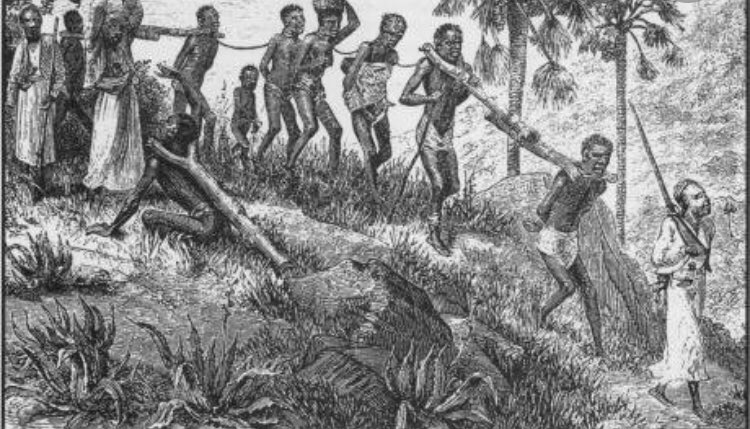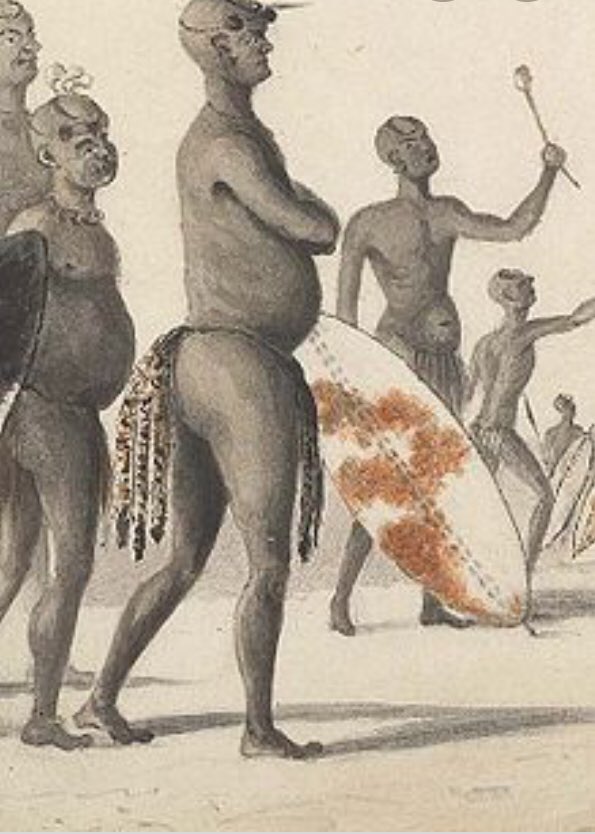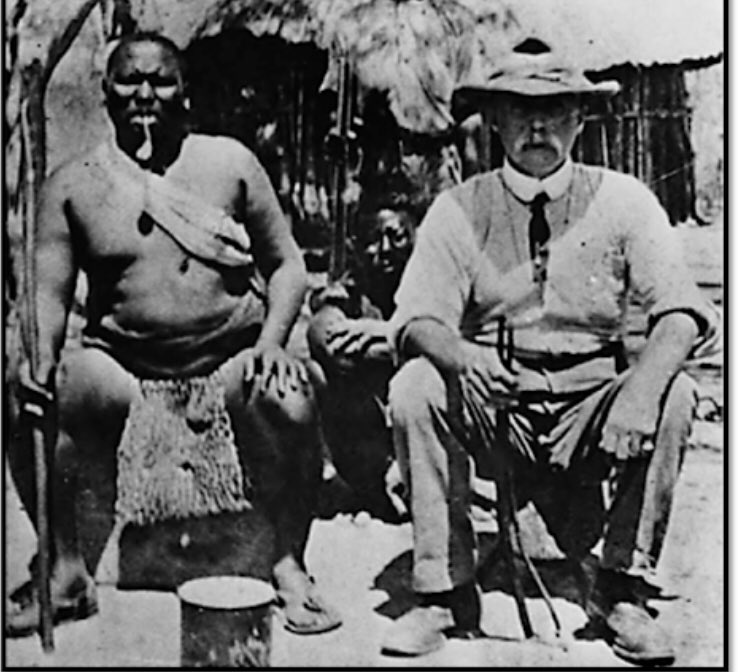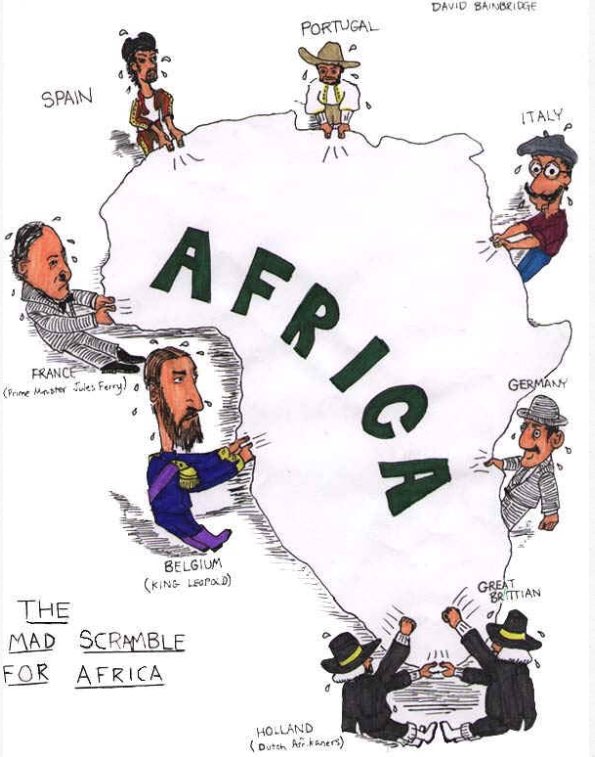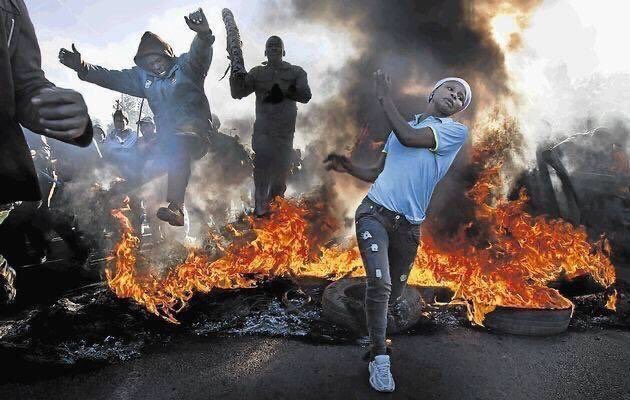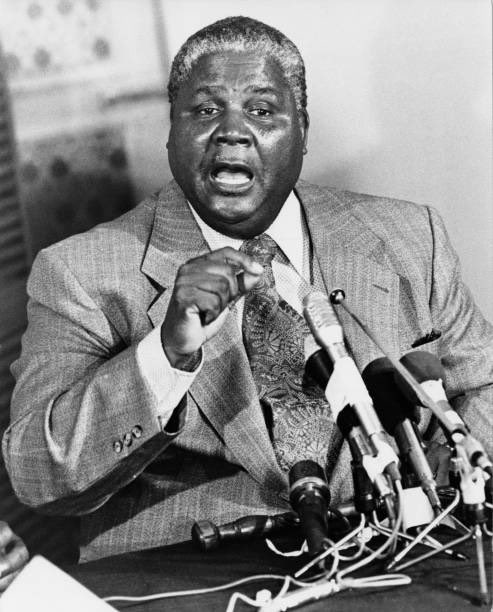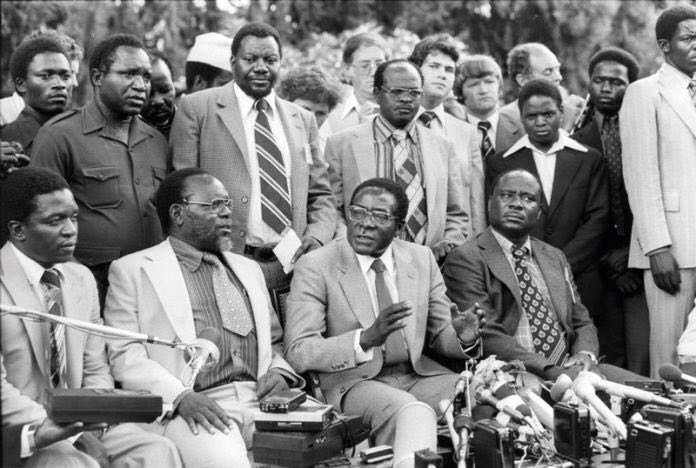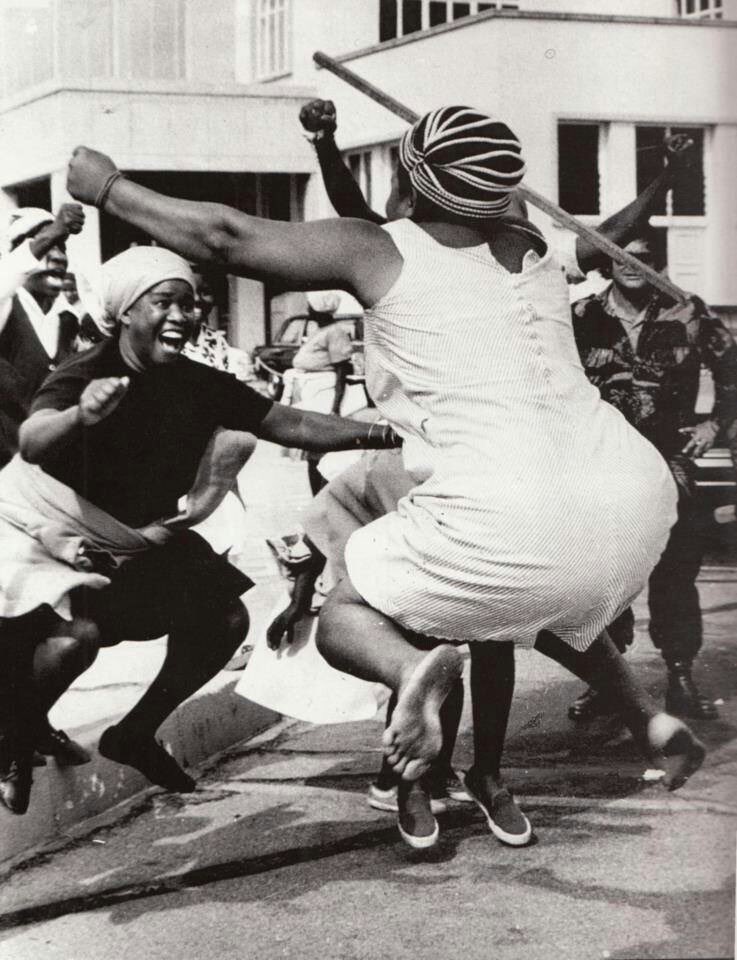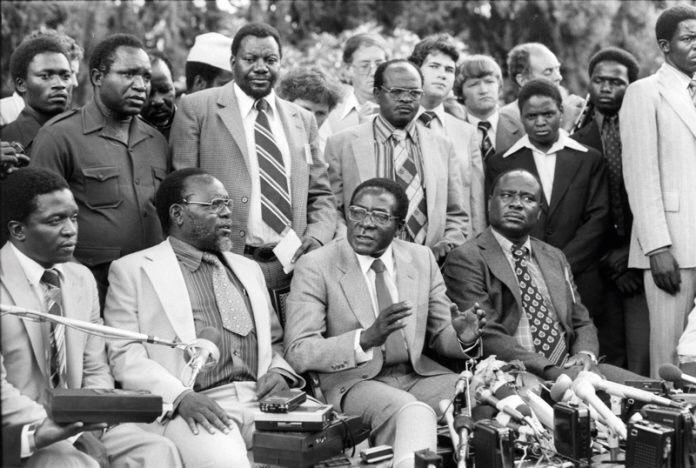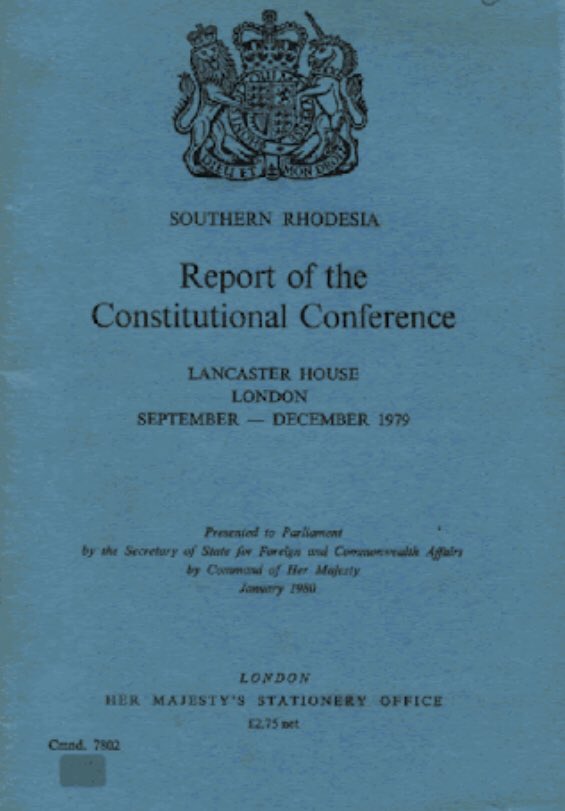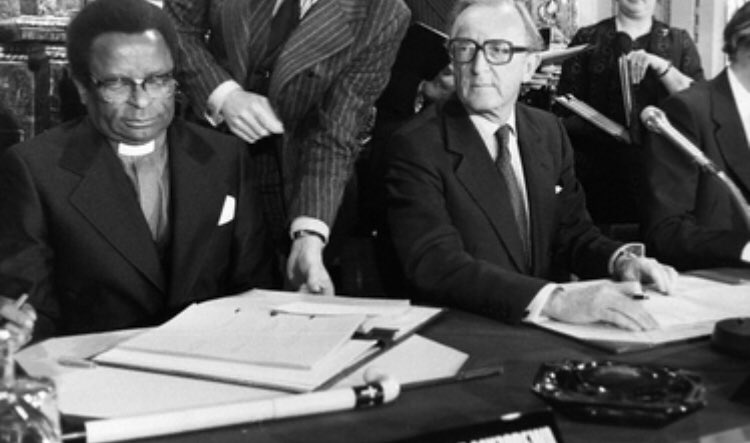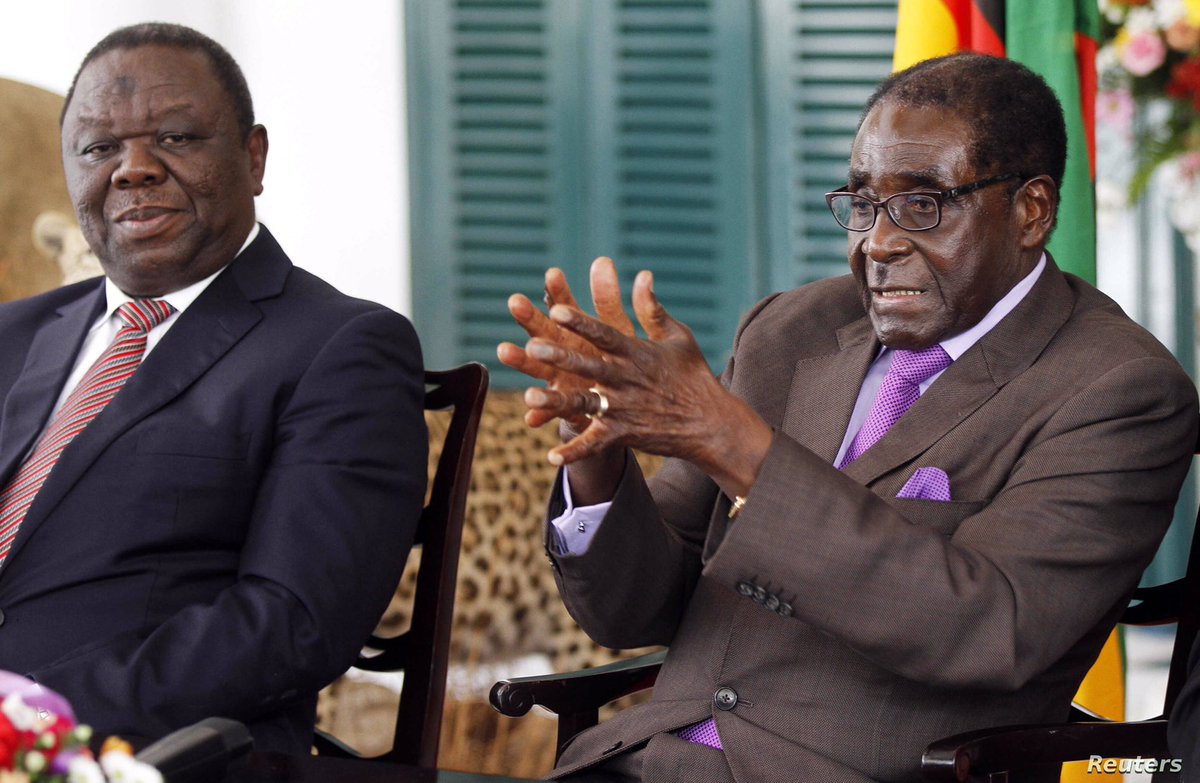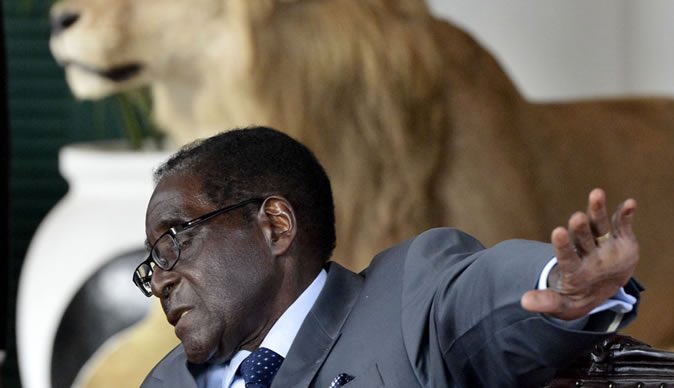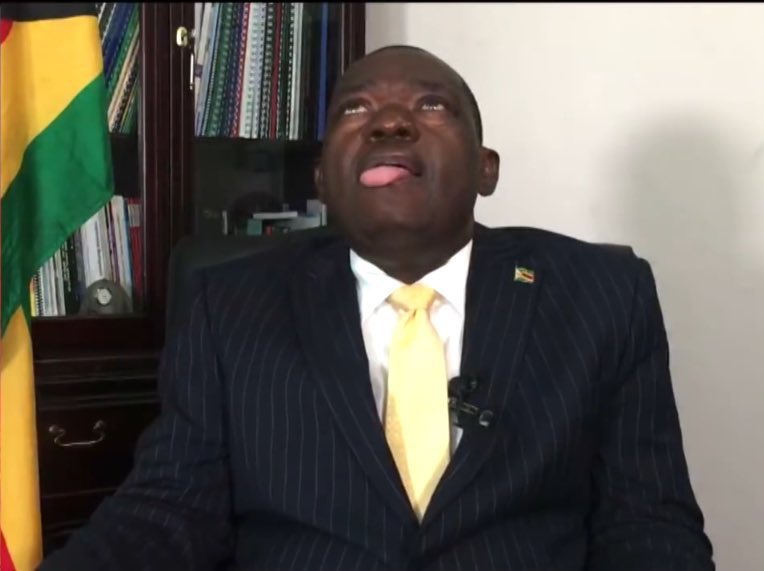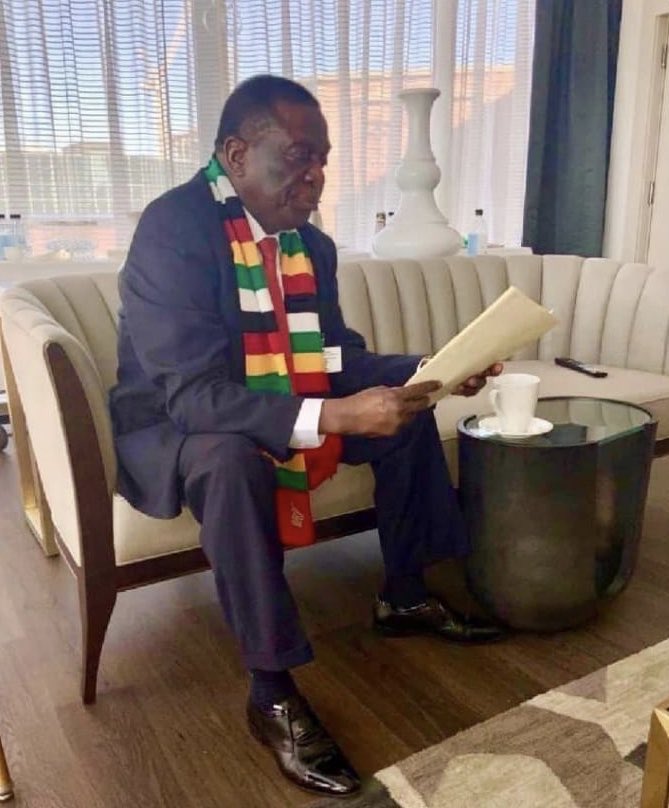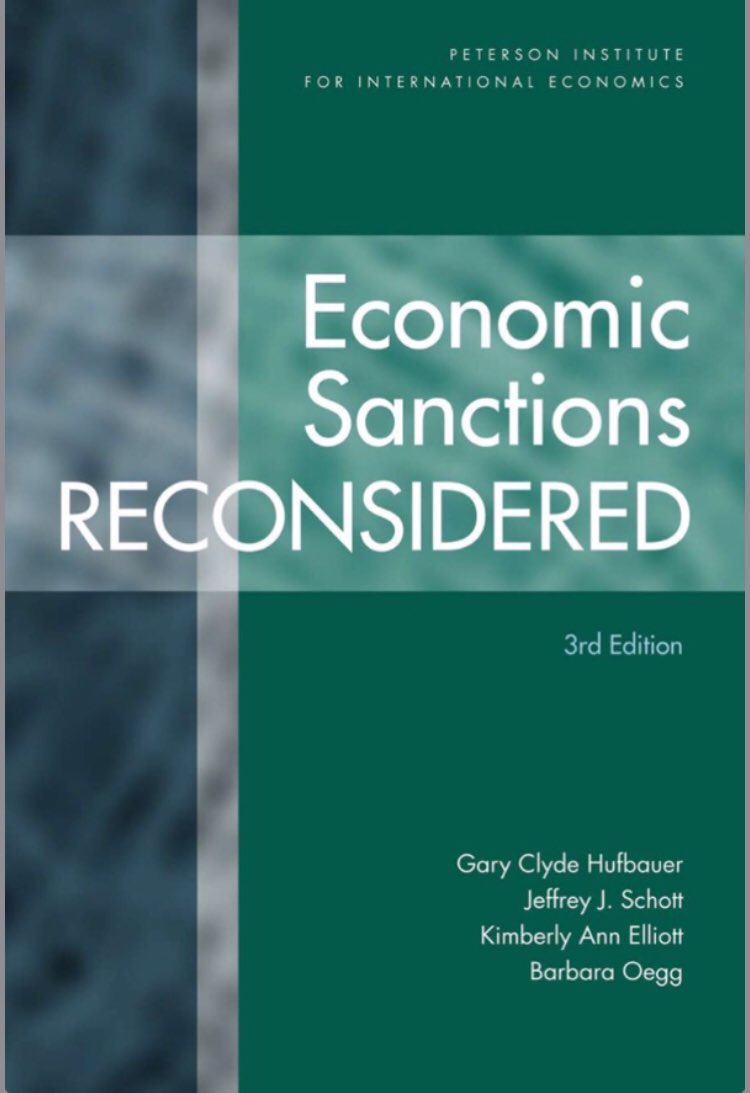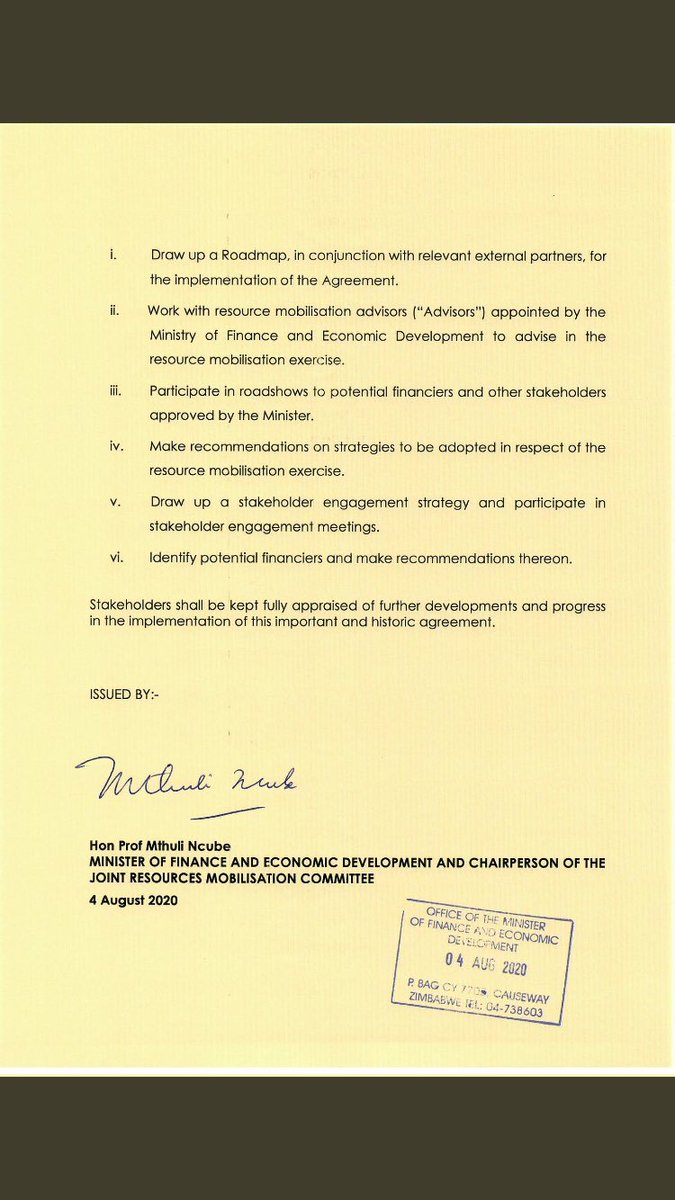Today I will share about the Lancaster House Conference & Land Reform in Zimbabwe to show why we are now here “paying” white farmers $USD3.5 Billion. A tad long (41 Tweets) but hopefully informative.
 https://abs.twimg.com/emoji/v2/... draggable="false" alt="✍🏾" title="Schreibende Hand (durchschnittlich dunkler Hautton)" aria-label="Emoji: Schreibende Hand (durchschnittlich dunkler Hautton)">
https://abs.twimg.com/emoji/v2/... draggable="false" alt="✍🏾" title="Schreibende Hand (durchschnittlich dunkler Hautton)" aria-label="Emoji: Schreibende Hand (durchschnittlich dunkler Hautton)"> https://abs.twimg.com/emoji/v2/... draggable="false" alt="✍🏾" title="Schreibende Hand (durchschnittlich dunkler Hautton)" aria-label="Emoji: Schreibende Hand (durchschnittlich dunkler Hautton)">
https://abs.twimg.com/emoji/v2/... draggable="false" alt="✍🏾" title="Schreibende Hand (durchschnittlich dunkler Hautton)" aria-label="Emoji: Schreibende Hand (durchschnittlich dunkler Hautton)"> https://abs.twimg.com/emoji/v2/... draggable="false" alt="✍🏾" title="Schreibende Hand (durchschnittlich dunkler Hautton)" aria-label="Emoji: Schreibende Hand (durchschnittlich dunkler Hautton)"> Thread
https://abs.twimg.com/emoji/v2/... draggable="false" alt="✍🏾" title="Schreibende Hand (durchschnittlich dunkler Hautton)" aria-label="Emoji: Schreibende Hand (durchschnittlich dunkler Hautton)"> Thread  https://abs.twimg.com/emoji/v2/... draggable="false" alt="✍🏾" title="Schreibende Hand (durchschnittlich dunkler Hautton)" aria-label="Emoji: Schreibende Hand (durchschnittlich dunkler Hautton)">
https://abs.twimg.com/emoji/v2/... draggable="false" alt="✍🏾" title="Schreibende Hand (durchschnittlich dunkler Hautton)" aria-label="Emoji: Schreibende Hand (durchschnittlich dunkler Hautton)"> https://abs.twimg.com/emoji/v2/... draggable="false" alt="✍🏾" title="Schreibende Hand (durchschnittlich dunkler Hautton)" aria-label="Emoji: Schreibende Hand (durchschnittlich dunkler Hautton)">
https://abs.twimg.com/emoji/v2/... draggable="false" alt="✍🏾" title="Schreibende Hand (durchschnittlich dunkler Hautton)" aria-label="Emoji: Schreibende Hand (durchschnittlich dunkler Hautton)"> https://abs.twimg.com/emoji/v2/... draggable="false" alt="✍🏾" title="Schreibende Hand (durchschnittlich dunkler Hautton)" aria-label="Emoji: Schreibende Hand (durchschnittlich dunkler Hautton)">
https://abs.twimg.com/emoji/v2/... draggable="false" alt="✍🏾" title="Schreibende Hand (durchschnittlich dunkler Hautton)" aria-label="Emoji: Schreibende Hand (durchschnittlich dunkler Hautton)">
Zim history starts with the Khoisan who inhabited modern day Zim from the 5th Century. They retreated to the South-East when Bantu settlers from the north began arriving in the 10th Century. In the 11th Century a powerful & wealthy Shona dynasty-
-rose at Great Zimbabwe in the vicinity of the modern-day Masvingo & Swahili traders began trading there (you can find the roots of International Trade Law from such activities, we were at it as Africa before Colonialists came here).
By the 16th Century when Portuguese traders arrived, the Great Zimbabwe society had crumbled & the Shona dynasties had fractured into autonomous states (factions aren’t new in Zim after all you see). This made it easy for colonialists to conquer the natives.
In the 1830s, the Ndebele warrior people from the South (what is now South Africa) arrived in Zim & a few years later their chief, Mzilikazi, established his capital in Bulawayo (the second capital city of Zimbabwe). Later that century the Ndebele,-
-under Mzilikazi’s son Lobengula, put up great resistance against British settlers. The arrival of the British settlers was as a result of the Scramble for Africa (1874-1914). As for Zim, its initial colonization was backed by the Royal Charter from Queen Victoria-
-following the Berlin Conference. The Berlin Conference in 1885, initiated by Germany’s Chancellor Bismark, set out guidelines for the colonization of Africa.
In 1922, BSAC started making use of the law for economic exploitation by introducing the Land Apportionment Act, around the 1930s, which restricted black access to land, forcing many into wage labor. In 1969, the Land Tenure Act was passed.
According to Palmer, the Land Apportionment Act & the Land Tenure Act had become something of a Magna Carta (not the Jay-Z one  https://abs.twimg.com/emoji/v2/... draggable="false" alt="🌚" title="Neumond mit Gesicht" aria-label="Emoji: Neumond mit Gesicht">)to the whites, guaranteeing them the preservation of their way of life & insulating it from encroachment by the hordes of blacks.
https://abs.twimg.com/emoji/v2/... draggable="false" alt="🌚" title="Neumond mit Gesicht" aria-label="Emoji: Neumond mit Gesicht">)to the whites, guaranteeing them the preservation of their way of life & insulating it from encroachment by the hordes of blacks.
It is this injustice that fueled the war of liberation that culminated in the birth of the new Zimbabwe (Palmer 1977: 178). From that period until the 1960s Black opposition to colonial rule grew. Nationalist groups emerged,-
-namely the Zimbabwe African People& #39;s Union (ZAPU) & the Zimbabwe African National Union (ZANU). After becoming the Prime Minister in 1964 Ian Smith unilaterally declared independence under white minority rule, sparking international outrage & economic sanctions.
8 years later the guerrilla war against white rule intensified, with rivals Zanu & Zapu operating out of Zambia & Mozambique, which then ended with Smith yielding to pressure for negotiated settlement 1978.
In 1979 British-brokered all-party talks at Lancaster House in London leading to a peace agreement & new constitution, which guaranteed minority rights. In 1980, Veteran pro-independence leader Robert Mugabe & his Zanu party won the British-supervised independence elections.
In 1987 Mugabe changed the constitution & became the executive president. The changes were characterized by a radical shifting of responsibility for land redistribution from the Zimbabwean state to the United Kingdom in the 1990s because of-
-British’s refusal to keep their promise to pay for land purchase under Lancaster House Agreement (remember this). In light of the above, it’s not surprising that legal processes were accompanied by force & violence from the year 2000 on-wards.
It has been argued that the use of law & force to dispossess landowners of their properties along racial lines, especially after the year 2000, echoed the colonial period. But the roles had been reversed.
The white commercial farmers exchanged places with their black counterparts who had borne the brunt of the unjust legal system in the 1930s & 1960s (The Patriot Reporter 2017).
The British government invited Methodist Bishop Muzorewa & the leaders of the Patriotic Front to participate in a Constitutional Conference at Lancaster House following the Meeting of Commonwealth Heads of Gvt held in Zambia in 1979.
The Patriotic Front was a coalition that was formed by Robert Mugabe & Joshua Nkomo’s parties to fight Smith’s regime. The aim of the Conference was to reach agreement on the terms of an Independence Constitution. Central to these talks was the issue of land.
This new constitution protected the private property rights of white farmers for the first 10 years. Major setback for Zim was that the Lancaster House Conference provided imperialism with the opportunity to be an umpire in a match in which it had vested interest (Mandaza 1987:2)
The Thatcher led gvt agreed to provide what was needed to purchase land for redistribution. At the request of the British gvt, America’s Carter gvt also chipped in. The Patriotic Front mistakenly took the British & Americans word & a conference that had dragged for 3 months ended
In socio-legal perspective, the Lancaster House Agreement is far from satisfactory. In legal perspective, it gave a legal loophole to the advantage of white farmers, who could easily keep the farms & prime land as property rights protecting their ownership of the land by law.
Within the ten years from 1980 to 1990, there was no tangible significant improvements in the black’s land ownership, let alone poverty alleviation in Zimbabwe (Chris McGreal 2002).
A fatal mistake made by the Mugabe regime during the negotiations on the Lancaster House Agreement was that the gvt should pay in any currency of the landowners’ choice in case of government purchase of land.-
-White landowners, in most cases, demanded new Zimbabwean government to pay United States dollars. (Herbst 1992:42).
•Sidebar: think of the effect to an economy that was already underperforming.
•Sidebar: think of the effect to an economy that was already underperforming.
There were changes to the law which were resisted by the commercial farmers, who were the white farmers owning prime lands. They brought legal challenges to the legality of the statute and constitutionality of government acts by civil litigation.
In one leading case, Davies & Others v. Minister of Lands, Agriculture & Water Development (case reference 1994 (2) ZLR 294 (H), the constitutionality of the designation of land under the Land Acquisition Act 1992 was legally challenged.
Even though the Zimbabwean government won the case the court ruling was not a win-win solution for both white farmers & government. Mugabe’s efforts to plug the loopholes in the Lancaster House Agreement were not regarded as unconstitutional by the Zimbabwean judiciary.
The gvt of Zimbabwe has traditionally placed the obligation on the British gvt, which had for years since independence been funding the land reform under an unwritten arrangement allegedly reached at the Lancaster House talks.
When the new Labor Party government came into power in 1997 with Tony Blair at the helm, Britain unequivocally indicated that she was not obliged to foot the compensation bill. Britain had backtracked on its earlier compensation promises.
The Zim interest group openly showed their disgruntlement under the leadership of the war veterans through the invasions of farms under white ownership. Behind the curtain, the gvt supported these inhumane farm invasions which were violently & illegally-
-carried out with human rights abuses. Apparently, most acts of the war veterans constituted infringements of the Convention against Torture,Cruel, Inhumane or Degrading Treatment. The criminal justice agents used to turn a blind eye on the-
-violence, torture & unlawful killings (Sachikonye 2003:117). In this connection, it is noteworthy that ZANU (PF) ran the elections with the motto, ‘Land is the economy, economy is the land’
Serious inflation & economic recession were as a result of the sanctions & trade embargoes (not negating corruption & other factors) imposed against Zimbabwe by the western continent in order to pressurize the gvt into submission to the demands of the west,-
-mainly the imperialist British & American governments. Before the adoption of a multiple currency regime, the country had suffered a cumulative economic decline of 51 percent between 1999 and 2008.
It seems as long as a government does not share the same interests with these two governments it is met with sanctions and pressure in all forms, which usually in most cases tumble the countries into civil wars as the effect of these sanctions and trade embargoes-
-which affects the economy is ultimately felt by the average citizens, who are then forced to want the government out and have a new government which may change their situation. However, they forget the causation of the whole chain of events is clause 16 of Lancaster-
-House Agreement and the blameworthiness of the British to keep their promise of paying compensation. In 1979, the Lancaster House Accords signed by the shameless Lord Carrington agreed to an equitable compensation in the distribution of farmland.
Verbal agreements supplemented the written records; the written accord is an incomplete document. The minutes and session discussions are also incorporated into the final Accords if the parties so intended. Everything is so clear that British have-
-legal obligation to pay compensation.
Fast forward to the 2013 Constitution, s72 (3) & s295 requires the government of Zim to pay for “improvements” which were done on the land, hence now we have @MthuliNcube announcing GoZ committing-
Fast forward to the 2013 Constitution, s72 (3) & s295 requires the government of Zim to pay for “improvements” which were done on the land, hence now we have @MthuliNcube announcing GoZ committing-
-to pay $USD3.5 Billion to white farmers whose land was taken away. Dealing with the land issue is one of the main requirements under the ZDERA sanctions. Let’s end here for today. #LandReform #Sanctions #Zimbabwe

 Read on Twitter
Read on Twitter https://abs.twimg.com/emoji/v2/... draggable="false" alt="✍🏾" title="Schreibende Hand (durchschnittlich dunkler Hautton)" aria-label="Emoji: Schreibende Hand (durchschnittlich dunkler Hautton)">https://abs.twimg.com/emoji/v2/... draggable="false" alt="✍🏾" title="Schreibende Hand (durchschnittlich dunkler Hautton)" aria-label="Emoji: Schreibende Hand (durchschnittlich dunkler Hautton)"> Thread https://abs.twimg.com/emoji/v2/... draggable="false" alt="✍🏾" title="Schreibende Hand (durchschnittlich dunkler Hautton)" aria-label="Emoji: Schreibende Hand (durchschnittlich dunkler Hautton)">https://abs.twimg.com/emoji/v2/... draggable="false" alt="✍🏾" title="Schreibende Hand (durchschnittlich dunkler Hautton)" aria-label="Emoji: Schreibende Hand (durchschnittlich dunkler Hautton)">https://abs.twimg.com/emoji/v2/... draggable="false" alt="✍🏾" title="Schreibende Hand (durchschnittlich dunkler Hautton)" aria-label="Emoji: Schreibende Hand (durchschnittlich dunkler Hautton)">" title="Today I will share about the Lancaster House Conference & Land Reform in Zimbabwe to show why we are now here “paying” white farmers $USD3.5 Billion. A tad long (41 Tweets) but hopefully informative.https://abs.twimg.com/emoji/v2/... draggable="false" alt="✍🏾" title="Schreibende Hand (durchschnittlich dunkler Hautton)" aria-label="Emoji: Schreibende Hand (durchschnittlich dunkler Hautton)">https://abs.twimg.com/emoji/v2/... draggable="false" alt="✍🏾" title="Schreibende Hand (durchschnittlich dunkler Hautton)" aria-label="Emoji: Schreibende Hand (durchschnittlich dunkler Hautton)">https://abs.twimg.com/emoji/v2/... draggable="false" alt="✍🏾" title="Schreibende Hand (durchschnittlich dunkler Hautton)" aria-label="Emoji: Schreibende Hand (durchschnittlich dunkler Hautton)"> Thread https://abs.twimg.com/emoji/v2/... draggable="false" alt="✍🏾" title="Schreibende Hand (durchschnittlich dunkler Hautton)" aria-label="Emoji: Schreibende Hand (durchschnittlich dunkler Hautton)">https://abs.twimg.com/emoji/v2/... draggable="false" alt="✍🏾" title="Schreibende Hand (durchschnittlich dunkler Hautton)" aria-label="Emoji: Schreibende Hand (durchschnittlich dunkler Hautton)">https://abs.twimg.com/emoji/v2/... draggable="false" alt="✍🏾" title="Schreibende Hand (durchschnittlich dunkler Hautton)" aria-label="Emoji: Schreibende Hand (durchschnittlich dunkler Hautton)">">
https://abs.twimg.com/emoji/v2/... draggable="false" alt="✍🏾" title="Schreibende Hand (durchschnittlich dunkler Hautton)" aria-label="Emoji: Schreibende Hand (durchschnittlich dunkler Hautton)">https://abs.twimg.com/emoji/v2/... draggable="false" alt="✍🏾" title="Schreibende Hand (durchschnittlich dunkler Hautton)" aria-label="Emoji: Schreibende Hand (durchschnittlich dunkler Hautton)"> Thread https://abs.twimg.com/emoji/v2/... draggable="false" alt="✍🏾" title="Schreibende Hand (durchschnittlich dunkler Hautton)" aria-label="Emoji: Schreibende Hand (durchschnittlich dunkler Hautton)">https://abs.twimg.com/emoji/v2/... draggable="false" alt="✍🏾" title="Schreibende Hand (durchschnittlich dunkler Hautton)" aria-label="Emoji: Schreibende Hand (durchschnittlich dunkler Hautton)">https://abs.twimg.com/emoji/v2/... draggable="false" alt="✍🏾" title="Schreibende Hand (durchschnittlich dunkler Hautton)" aria-label="Emoji: Schreibende Hand (durchschnittlich dunkler Hautton)">" title="Today I will share about the Lancaster House Conference & Land Reform in Zimbabwe to show why we are now here “paying” white farmers $USD3.5 Billion. A tad long (41 Tweets) but hopefully informative.https://abs.twimg.com/emoji/v2/... draggable="false" alt="✍🏾" title="Schreibende Hand (durchschnittlich dunkler Hautton)" aria-label="Emoji: Schreibende Hand (durchschnittlich dunkler Hautton)">https://abs.twimg.com/emoji/v2/... draggable="false" alt="✍🏾" title="Schreibende Hand (durchschnittlich dunkler Hautton)" aria-label="Emoji: Schreibende Hand (durchschnittlich dunkler Hautton)">https://abs.twimg.com/emoji/v2/... draggable="false" alt="✍🏾" title="Schreibende Hand (durchschnittlich dunkler Hautton)" aria-label="Emoji: Schreibende Hand (durchschnittlich dunkler Hautton)"> Thread https://abs.twimg.com/emoji/v2/... draggable="false" alt="✍🏾" title="Schreibende Hand (durchschnittlich dunkler Hautton)" aria-label="Emoji: Schreibende Hand (durchschnittlich dunkler Hautton)">https://abs.twimg.com/emoji/v2/... draggable="false" alt="✍🏾" title="Schreibende Hand (durchschnittlich dunkler Hautton)" aria-label="Emoji: Schreibende Hand (durchschnittlich dunkler Hautton)">https://abs.twimg.com/emoji/v2/... draggable="false" alt="✍🏾" title="Schreibende Hand (durchschnittlich dunkler Hautton)" aria-label="Emoji: Schreibende Hand (durchschnittlich dunkler Hautton)">">
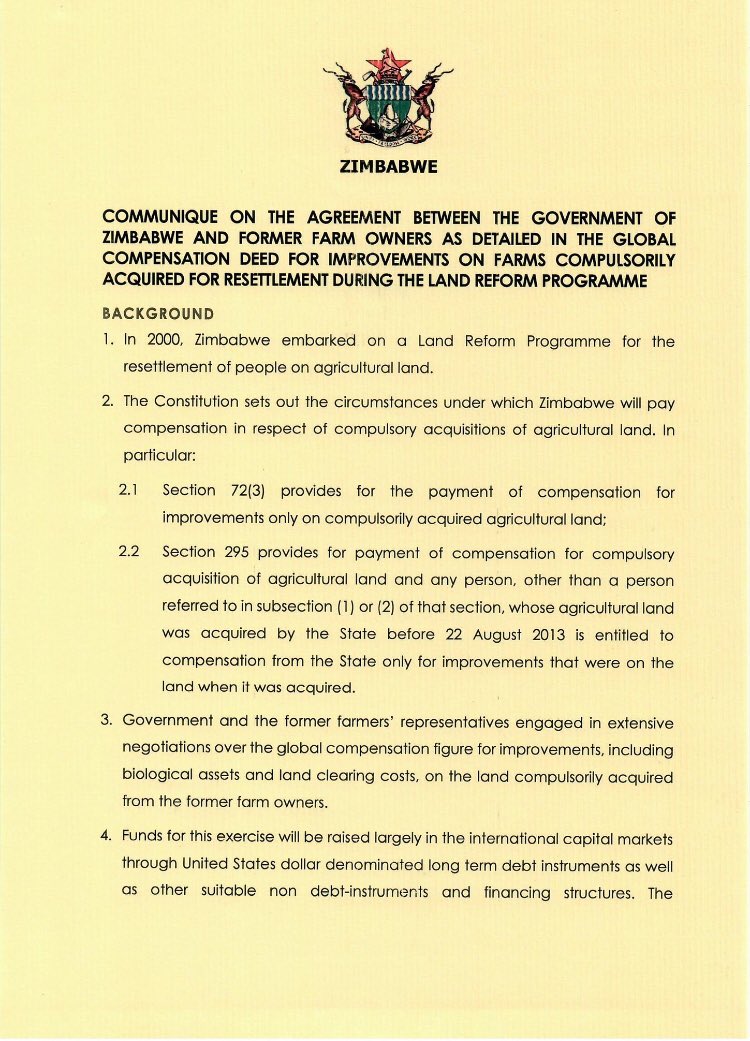 https://abs.twimg.com/emoji/v2/... draggable="false" alt="✍🏾" title="Schreibende Hand (durchschnittlich dunkler Hautton)" aria-label="Emoji: Schreibende Hand (durchschnittlich dunkler Hautton)">https://abs.twimg.com/emoji/v2/... draggable="false" alt="✍🏾" title="Schreibende Hand (durchschnittlich dunkler Hautton)" aria-label="Emoji: Schreibende Hand (durchschnittlich dunkler Hautton)"> Thread https://abs.twimg.com/emoji/v2/... draggable="false" alt="✍🏾" title="Schreibende Hand (durchschnittlich dunkler Hautton)" aria-label="Emoji: Schreibende Hand (durchschnittlich dunkler Hautton)">https://abs.twimg.com/emoji/v2/... draggable="false" alt="✍🏾" title="Schreibende Hand (durchschnittlich dunkler Hautton)" aria-label="Emoji: Schreibende Hand (durchschnittlich dunkler Hautton)">https://abs.twimg.com/emoji/v2/... draggable="false" alt="✍🏾" title="Schreibende Hand (durchschnittlich dunkler Hautton)" aria-label="Emoji: Schreibende Hand (durchschnittlich dunkler Hautton)">" title="Today I will share about the Lancaster House Conference & Land Reform in Zimbabwe to show why we are now here “paying” white farmers $USD3.5 Billion. A tad long (41 Tweets) but hopefully informative.https://abs.twimg.com/emoji/v2/... draggable="false" alt="✍🏾" title="Schreibende Hand (durchschnittlich dunkler Hautton)" aria-label="Emoji: Schreibende Hand (durchschnittlich dunkler Hautton)">https://abs.twimg.com/emoji/v2/... draggable="false" alt="✍🏾" title="Schreibende Hand (durchschnittlich dunkler Hautton)" aria-label="Emoji: Schreibende Hand (durchschnittlich dunkler Hautton)">https://abs.twimg.com/emoji/v2/... draggable="false" alt="✍🏾" title="Schreibende Hand (durchschnittlich dunkler Hautton)" aria-label="Emoji: Schreibende Hand (durchschnittlich dunkler Hautton)"> Thread https://abs.twimg.com/emoji/v2/... draggable="false" alt="✍🏾" title="Schreibende Hand (durchschnittlich dunkler Hautton)" aria-label="Emoji: Schreibende Hand (durchschnittlich dunkler Hautton)">https://abs.twimg.com/emoji/v2/... draggable="false" alt="✍🏾" title="Schreibende Hand (durchschnittlich dunkler Hautton)" aria-label="Emoji: Schreibende Hand (durchschnittlich dunkler Hautton)">https://abs.twimg.com/emoji/v2/... draggable="false" alt="✍🏾" title="Schreibende Hand (durchschnittlich dunkler Hautton)" aria-label="Emoji: Schreibende Hand (durchschnittlich dunkler Hautton)">">
https://abs.twimg.com/emoji/v2/... draggable="false" alt="✍🏾" title="Schreibende Hand (durchschnittlich dunkler Hautton)" aria-label="Emoji: Schreibende Hand (durchschnittlich dunkler Hautton)">https://abs.twimg.com/emoji/v2/... draggable="false" alt="✍🏾" title="Schreibende Hand (durchschnittlich dunkler Hautton)" aria-label="Emoji: Schreibende Hand (durchschnittlich dunkler Hautton)"> Thread https://abs.twimg.com/emoji/v2/... draggable="false" alt="✍🏾" title="Schreibende Hand (durchschnittlich dunkler Hautton)" aria-label="Emoji: Schreibende Hand (durchschnittlich dunkler Hautton)">https://abs.twimg.com/emoji/v2/... draggable="false" alt="✍🏾" title="Schreibende Hand (durchschnittlich dunkler Hautton)" aria-label="Emoji: Schreibende Hand (durchschnittlich dunkler Hautton)">https://abs.twimg.com/emoji/v2/... draggable="false" alt="✍🏾" title="Schreibende Hand (durchschnittlich dunkler Hautton)" aria-label="Emoji: Schreibende Hand (durchschnittlich dunkler Hautton)">" title="Today I will share about the Lancaster House Conference & Land Reform in Zimbabwe to show why we are now here “paying” white farmers $USD3.5 Billion. A tad long (41 Tweets) but hopefully informative.https://abs.twimg.com/emoji/v2/... draggable="false" alt="✍🏾" title="Schreibende Hand (durchschnittlich dunkler Hautton)" aria-label="Emoji: Schreibende Hand (durchschnittlich dunkler Hautton)">https://abs.twimg.com/emoji/v2/... draggable="false" alt="✍🏾" title="Schreibende Hand (durchschnittlich dunkler Hautton)" aria-label="Emoji: Schreibende Hand (durchschnittlich dunkler Hautton)">https://abs.twimg.com/emoji/v2/... draggable="false" alt="✍🏾" title="Schreibende Hand (durchschnittlich dunkler Hautton)" aria-label="Emoji: Schreibende Hand (durchschnittlich dunkler Hautton)"> Thread https://abs.twimg.com/emoji/v2/... draggable="false" alt="✍🏾" title="Schreibende Hand (durchschnittlich dunkler Hautton)" aria-label="Emoji: Schreibende Hand (durchschnittlich dunkler Hautton)">https://abs.twimg.com/emoji/v2/... draggable="false" alt="✍🏾" title="Schreibende Hand (durchschnittlich dunkler Hautton)" aria-label="Emoji: Schreibende Hand (durchschnittlich dunkler Hautton)">https://abs.twimg.com/emoji/v2/... draggable="false" alt="✍🏾" title="Schreibende Hand (durchschnittlich dunkler Hautton)" aria-label="Emoji: Schreibende Hand (durchschnittlich dunkler Hautton)">">


